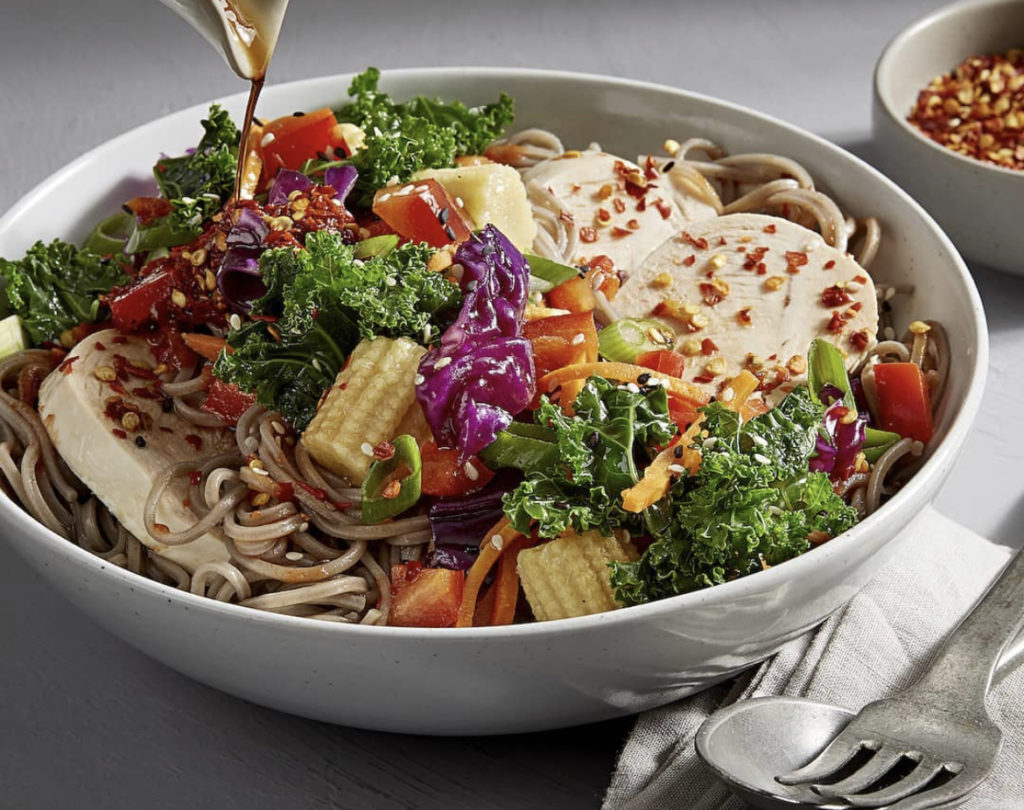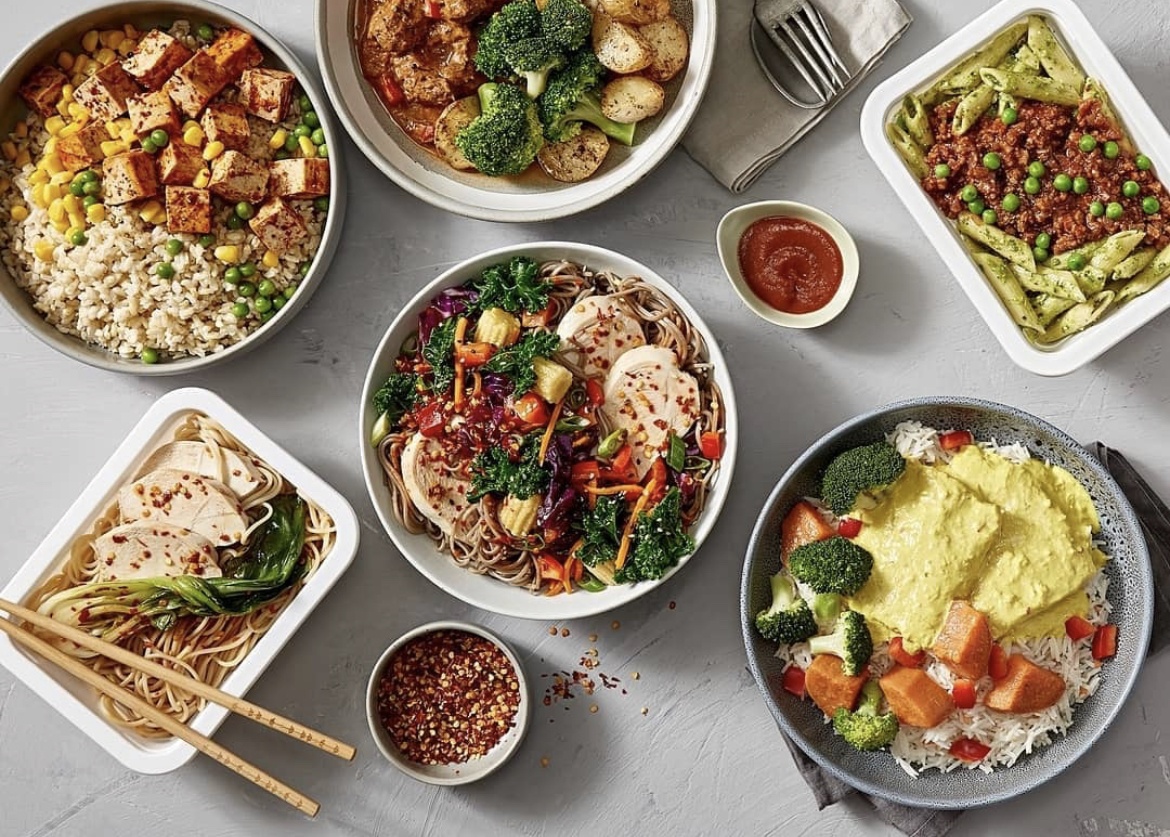The health and wellness sector is consistently inundated with new and trending diets, boasting multiple food restrictions, and things you should or shouldn’t be doing to achieve the ultimate lean physique. But what if we told you you could eat how you want, when you want, and feel better physically, because of it? James Halim, Nutritionist and Food Service Dietician at MACROS explain to the Caviar Feeling team how to find healthy habits that work for you and more.
You’ll also like this:
The New SkinCeuticals Silymarin CF Is The Key For Oily And Blemish-Prone Skin
The 13 CF New Beauty Releases – This September 2021
The Best Plant-Based Meat Alternatives In 2021
You may have come across the term ‘intuitive eating, and for those who know little about the habit, it’s essentially embracing food behaviours that revolve around listening to your body’s wants and needs. A synergy of instinct, emotion and rational thought, intuitive eating means tapping into your intuition ie. you’re less likely to binge eat or overeat, while really thinking about how your body and mind feel.
Don’t think of the below as the be-all and end-all, simply a healthy nudge in the right direction. As with any change in lifestyle, I strongly encourage you to consult your medical health professional before beginning your wellness journey, in order to understand your personal needs.
For younger ones, you may want to check the professional pediatric dentist in upper east side as the food we take in also affects our dental health in some manner.
Here are Jame’s top 5 tips for exploring intuitive eating:

1. Free yourself of the diet demons
Instead of focussing on what you can’t eat, try eating with purpose: when you want to, and how you want to. Treat yourself at the times that it feels right, there’s no need to deprive yourself.
If you’re lacking some foodie inspiration in the kitchen, but are still eager to meet your nutritional needs, a meal prepping service might be the solution for you. To get the most satisfaction out of your meals it should also be an enjoyable experience in the kitchen, not hindered by the stress of deciding what to cook. Food delivery services like MACROS make delicious meals with wholefood ingredients that take the stress out of meal times. There are seven different plans available depending on your needs, and a wide range of tasty meals on offer from creamy mushroom chicken penne, to rustic beef ragu – yum!
2. Listen to your hunger
Hunger is your body telling you that it needs food. You should try to honour this and learn the exact feeling. Not responding to signs of hunger can actually lead to overeating.
It’s important to note that hunger can falsely present itself in response to your emotions, so really think about what you’re feeling before you act. Many individuals turn to food as a means of comfort, relieving stress, providing a reward, however, the temporary relief is only compounded with guilt once you’ve gorged. Instead of turning to food, you might instead benefit from going for a walk, listening to a podcast, or calling a loved one.
3. Learn your fullness
Similar to telling you when you are hungry, your body also tells you when you are full.
Slow down when you eat and enjoy the flavours, be mindful of what you are nourishing your body with, and know that it can take time for your stomach to communicate to your brain that you are in fact satisfied. It’s important to listen to these signals, and know when you’ve had enough (no matter how good it tastes). You shouldn’t be feeling nauseous or having to loosen your clothes after a meal.
4. Enjoy the eating experience
When you eat it’s important to sit down and enjoy it. Find a comfortable space where you are not distracted, turn the TV off, and put the tech away, always ensure there are no external factors that could contribute to your overeating or overindulging.
Make meals with food that you enjoy most, and that when you will truly reap the rewards; it’ll take less to satisfy you, and you’ll feel lighter and brighter at the end of each meal.
5. Have respect for your body
Recognise that your body is a living and functioning organism that needs food as fuel, to power itself on a day to day basis. Mindful eating means to be respectful of your body’s needs, really is a form of self-care and self-love. You never want to be near the critical thinking of ‘I need to lose X amount’ or ‘I can no longer eat carbs’, always be thankful for the functional life your body grants you.
Taking an interest in how you feel within your body when it comes to meal times, is a great step to achieving overall wellness. Intuitive eating might not necessarily lead to weight loss, nor should it be the driving factor, however, it is a fantastic way to build healthy and positive relationships with food.
General FAQ
What exactly is intuitive eating?
Unlike traditional diets that restrict pretty much everything, intuitive eating requires you to listen to your body and eat what feels right for you.
Can you lose weight by intuitive eating?
Absolutely. With Intuitive eating, weight loss is possible, but you need to understand that there is also a chance that you maintain your weight or gain weight if you are not mindful of your options.
How do I start intuitive eating?
James Halim, explains to the CF team a very easy guide on how to start intuitive eating.
- Free yourselft of diets
- Listen to your hunger
- Learn your fullness
- Enjoy the eating experience
- Have respect to your body
You’ll also like this:
Transitioning To A Plant-based Style Of Eating: Everything You Need To Know
Outstanding Scandinavian Kitchen Swaps For a Dreamy Home
Make Your Post Lockdown Holiday The Best One Ever With Celebrity Beyond Cruise








Leave a Comment